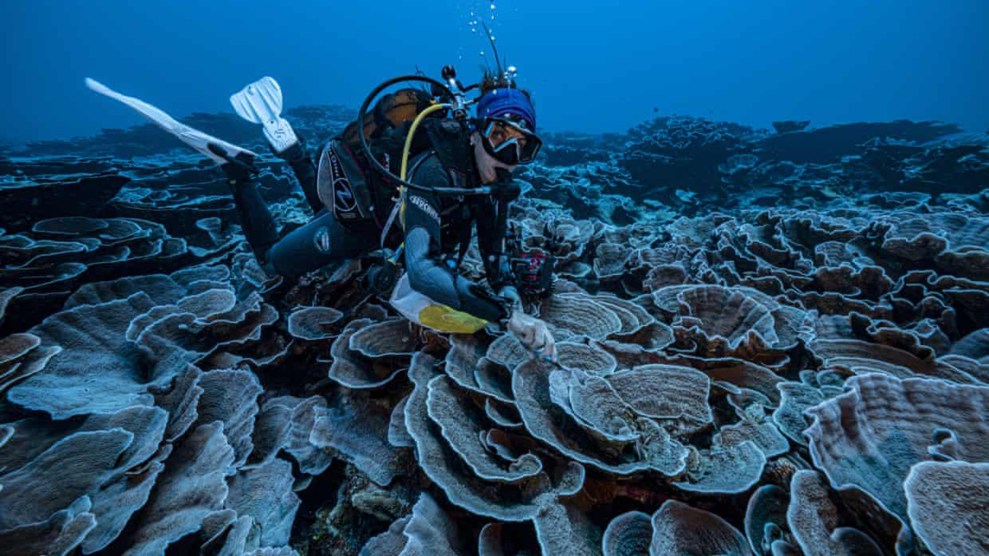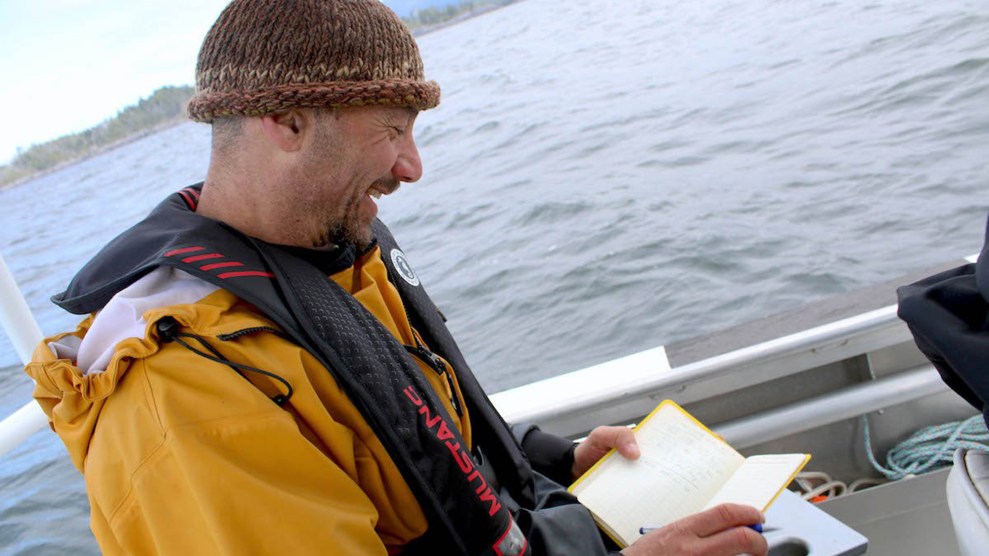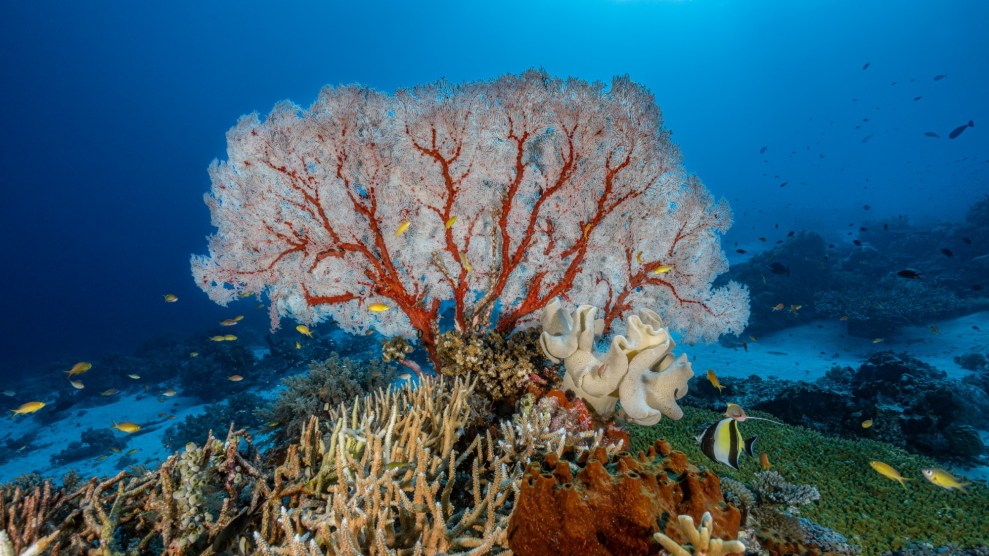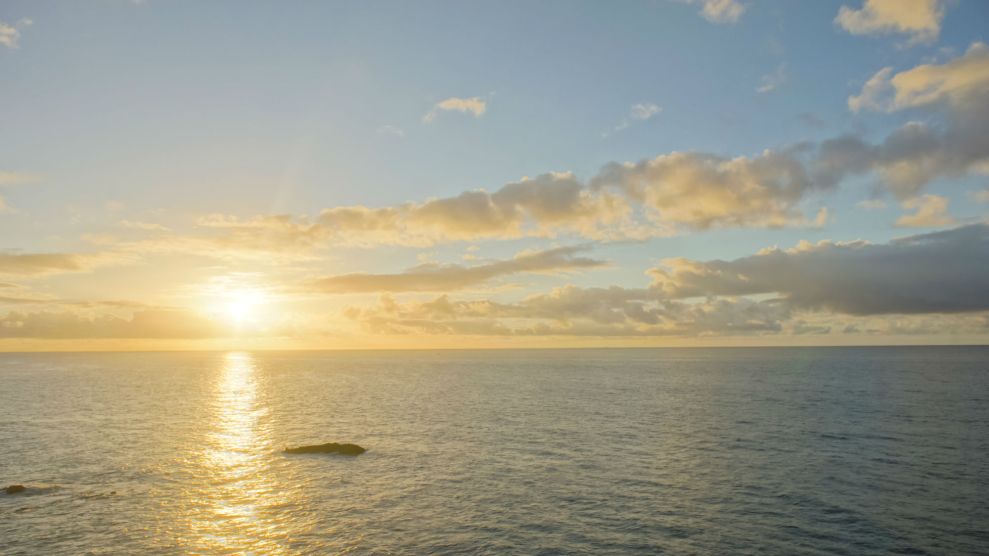
Alexis Rosenfeld/AP
This story was originally published by the Guardian and is reproduced here as part of the Climate Desk collaboration.
A huge coral reef has been discovered off the coast of Tahiti in the Pacific Ocean’s “twilight zone,” offering hope that more pristine ecosystems are waiting to be discovered at unexplored depths.
Stretching along the ocean floor for nearly two miles, the reef, covered in rose-shaped corals, is one of the largest such discoveries at depths of more than 30 meters, where sunlight levels are much lower.
Scientists for the Unesco-led mission in French Polynesia said the reef, discovered in November, did not appear to have suffered bleaching events that had damaged neighboring reefs in shallower waters in 2019. During dives totaling 200 hours, researchers were able to witness the coral spawning, with some spanning two meters.
“It was magical to witness giant, beautiful rose corals which stretch for as far as the eye can see,” said Alexis Rosenfeld, a French underwater photographer who was part of the team of international divers that made the discovery. “It was like a work of art.”
Researchers said more reefs were likely waiting to be discovered at these depths following improvements in diving technology, which had previously inhibited exploration.
“To date, we know the surface of the moon better than the deep ocean. Only 20 percent of the entire seabed has been mapped,” said Audrey Azoulay, Unesco’s director general.
Most of the world’s known coral reefs are at depths of 25 meters and above, with many facing the risk of collapse as the world’s oceans continue to heat. In September, a study found coral reef coverage had fallen by half since the 1950s because of global heating, overfishing, pollution and habitat destruction.
Speaking to the BBC Prof Murray Roberts, a marine scientist at the University of Edinburgh, said the discovery underscored the need to map similar reefs to make sure they can be protected in the future. “We still associate corals with the shallowest tropical seas but here we find a huge previously unknown coral reef system.
“As shallow waters warm faster than the deeper waters we may find these deeper reef systems are refuges for corals in the future. We need to get out there to map these special places,” he said.
Further dives are planned in the coming months off the coast of Tahiti to continue investigations around the reef.















